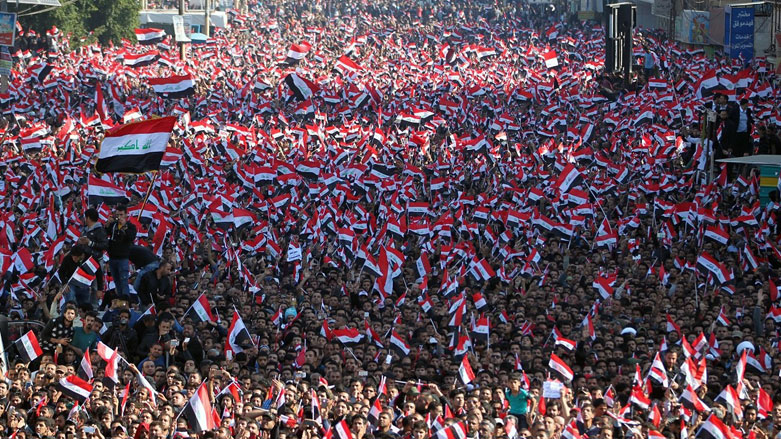Sadr’s bloc says Iraq should govern itself; people voted for Iraqis to rule, not others

ERBIL (Kurdistan 24) – The winner of Iraq's recent parliamentary elections, the Sairoon Coalition, denied disagreements between the bloc and Iran on Wednesday, emphasizing balanced relations with all the neighboring countries.
“Iran is a neighboring state, and we seek balanced relations that would serve the interests of both sides,” Secretary-General of Sairoon Coalition Hassan al-Aqouli told Iranian Tasnim news agency.
He commented on the foreign interventions in the formation of the new Iraqi government and stated that his bloc is seeking to form a national government able to make decisive decisions.
Aqouli stated that the people of Iraq voted for the winning candidates, and they will determine the future of the country, adding that it is the right of every country to govern itself.
Sairoon, led by populist Shia cleric Muqtada al-Sadr, surprisingly won Iraqi parliamentary election on May 12, securing 54 seats in the parliament from a total of 329.
Over the past decade, Iran has repeatedly been accused of interfering in Iraq's internal affairs, wielding substantial influence on decision-making in Baghdad.
“We believe in dialogue and positive fellowship with all countries, including Iraq’s neighbors. We seek to enjoy good relations with all of these countries, including the Islamic Republic of Iran,” Aqouli added.
He mentioned that his coalition would negotiate with all Iraqi parties to form the next cabinet, remarking that the "door is open" for any parties to join the government.
However, the official highlighted that the parties now coming up with plans for a “stronger and genuine government” will be closer to Sairoon. He explained that parties without any certain plan would be excluded from the process.
Aqouli noted that, regardless of who will be the next Premier of Iraq, Sairoon insists on a “definite and practical” plan to create the cabinet.
The formation of the new government requires the approval of 165 lawmakers. Since no party won the required number of seats, negotiations are expected to take place for at least a number of weeks between the parties build a major alliance and, ultimately, the Council of Ministers.
Sadr has long been marginalized from other Shia blocs, especially those with close ties to Iran.
Projecting himself as an Iraqi nationalist, Sadr has a zealous following among young, poor, and dispossessed Shia Iraqis, but has often been sidelined by influential Iran-backed figures.
Unlike current Iraqi Prime Minister Haider al-Abadi, a rare ally of both the United States and Iran, Sadr is an opponent of both countries. He has remained a prominent if mercurial figure in Iraq since a US-led operation toppled Sunni dictator Saddam Hussein in 2003 thrust the Shia majority into power.
Editing by John J. Catherine
